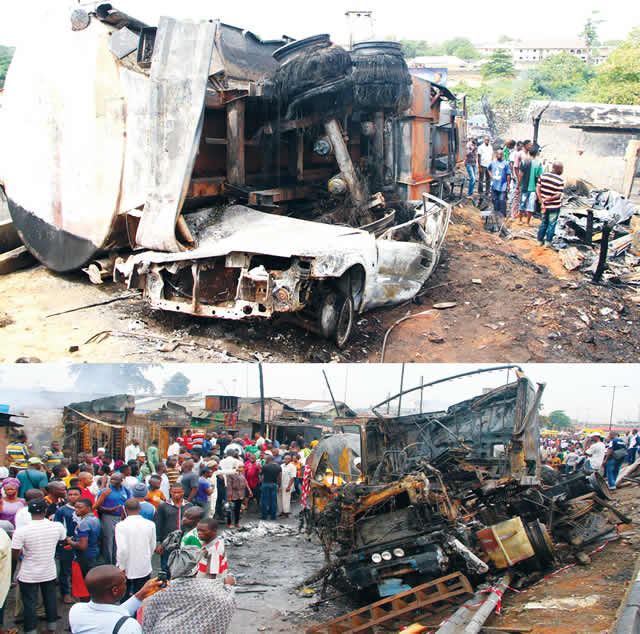The Nigerian petroleum industry is grappling with a recurring tragedy: fuel tanker accidents, often followed by explosions and significant loss of life. These incidents, frequently caused by overturned tankers spilling their flammable cargo, attract crowds attempting to scoop up the free fuel, resulting in devastating fires. In the past four years, over 400 lives have been lost in such incidents, with over 100 fatalities occurring in just three accidents this year alone. A stark example is the January 2025 tanker explosion near Suleja, Niger State, which claimed the lives of over 98 people. Concerned stakeholders, including regulatory bodies, marketers’ associations, and transport owners, are now seeking collaborative solutions to address this critical issue.
A recent webinar hosted by the Major Energies Marketers Association of Nigeria (MEMAN) brought together these stakeholders to discuss and formulate strategies to prevent future tragedies. The discussions focused on several key areas, including driver training and responsibility, road safety infrastructure, and public awareness campaigns. MEMAN Executive Secretary Clement Using emphasized the need for collective action and commitment from all parties involved, including operators, transporters, marketers, and enforcement agencies. He stressed that the industry must take responsibility for self-regulation, ensuring proper maintenance of vehicles and adherence to safety protocols. Simultaneously, enforcement agencies like the Federal Road Safety Corps and the police must play a crucial role in enforcing traffic regulations and ensuring compliance.
Road infrastructure also emerged as a significant factor contributing to these accidents. While acknowledging the importance of well-maintained roads, Using pointed out that multi-lane expressways can inadvertently encourage speeding. He advocated for a review of road design, incorporating safety features like barriers, speed reducers, and appropriate gradients and bends. He also emphasized the need for investment in existing roads to enhance safety measures and encourage responsible driving behavior. This multifaceted approach to road safety requires not only infrastructure improvements but also a shift in driver behavior and a greater emphasis on road safety education.
Public awareness and education are crucial to discouraging the dangerous practice of fuel scooping. The tragic consequences of this behavior are evident, yet the allure of free fuel continues to draw people into harm’s way. Stakeholders are calling for a national reorientation program to educate the public about the dangers of scooping fuel from overturned tankers. This education must emphasize the extreme flammability of petrol and the potential for catastrophic explosions. Instead of approaching a spill, individuals should prioritize securing the area and preventing others from getting close, emphasizing the importance of prioritizing safety over opportunistic gain.
The Nigerian Midstream and Downstream Petroleum Regulatory Authority (NMDPRA), along with other key players like the Independent Petroleum Marketers Association of Nigeria (IPMAN), the Petroleum Products Retail Outlet Owners Association of Nigeria (PETROAN), and the National Association of Road Transport Owners (NARTO), have pledged their commitment to tackling this issue. They are advocating for stricter regulations and enforcement, including ensuring that tankers are properly sealed and equipped to prevent spills in the event of an accident. Driver training programs are also being prioritized, focusing on safe driving practices, avoiding substance abuse, and managing driver fatigue.
These proposed solutions represent a comprehensive approach to addressing the problem of fuel tanker accidents and the resulting tragedies. By focusing on driver responsibility, improved road infrastructure, stricter enforcement, and public awareness campaigns, stakeholders aim to create a safer environment for both those working in the petroleum industry and the general public. The commitment from regulatory bodies and industry associations signifies a crucial step towards mitigating these risks and preventing future loss of life. Implementing these measures will require sustained effort, collaboration, and a continued focus on prioritizing safety above all else. Ultimately, the goal is to transform the current landscape of recurring tragedies into one of responsible practices and enhanced safety awareness, ensuring the well-being of all stakeholders and protecting lives and property.














